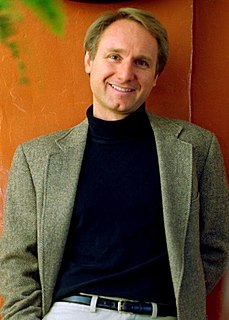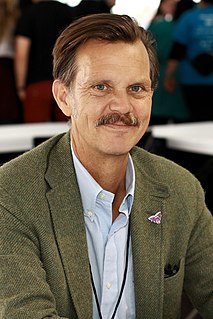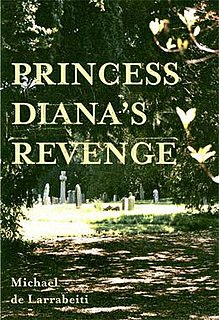Spy fiction, a genre of literature involving espionage as an important context or plot device, emerged in the early twentieth century, inspired by rivalries and intrigues between the major powers, and the establishment of modern intelligence agencies. It was given new impetus by the development of fascism and communism in the lead-up to World War II, continued to develop during the Cold War, and received a fresh impetus from the emergence of rogue states, international criminal organizations, global terrorist networks, maritime piracy and technological sabotage and espionage as potent threats to Western societies. As a genre, spy fiction is thematically related to the novel of adventure, the thriller and the politico-military thriller.

Crime fiction, detective story, murder mystery, mystery novel, and police novel: These terms all describe narratives that centre on criminal acts and especially on the investigation, either by an amateur or a professional detective, of a serious crime, generally a murder. It is usually distinguished from mainstream fiction and other genres such as historical fiction or science fiction, but the boundaries are indistinct. Crime fiction has multiple sub-genres, including detective fiction, courtroom drama, hard-boiled fiction and legal thrillers. Most crime drama focuses on crime investigation and does not feature the court room. Suspense and mystery are key elements that are nearly ubiquitous to the genre.
Genre fiction, also known as popular fiction, is a term used in the book-trade for fictional works written with the intent of fitting into a specific literary genre, in order to appeal to readers and fans already familiar with that genre.

Daniel Gerhard Brown is an American author best known for his thriller novels, including the Robert Langdon novels Angels & Demons (2000), The Da Vinci Code (2003), The Lost Symbol (2009), Inferno (2013) and Origin (2017). His novels are treasure hunts that usually take place over a period of 24 hours. They feature recurring themes of cryptography, art, and conspiracy theories. His books have been translated into 57 languages and, as of 2012, have sold over 200 million copies. Three of them, Angels & Demons, The Da Vinci Code, and Inferno, have been adapted into films.

John Edmund Gardner was an English spy and thriller novelist, best known for his James Bond continuation novels, but also for his series of Boysie Oakes books and three continuation novels containing Sir Arthur Conan Doyle's fictional villain, Professor Moriarty.
International Thriller Writers (ITW), was founded October 9, 2004, at Bouchercon XXXV, the "World Mystery and Suspense Conference", in Toronto, Ontario, Canada. Six months later, some 150 authors with more than one billion books sold worldwide had joined the organization as founding members. As of October 5, 2014, the organization's website boasts of having over 3,100 members in 28 countries.
John Lescroart is a New York Times bestselling author known for his series of legal and crime thriller novels featuring the characters Dismas Hardy, Abe Glitsky, and Wyatt Hunt. His novels have sold more than 10 million copies, have been translated into 22 languages in more than 75 countries, and 18 of his books have been on the New York Times bestseller list.
Gayle Lynds is an American author. She is known for being a bestselling novelist in the male-dominated genre of spy fiction or spy thrillers. Award-winning author, her books are published in some twenty countries. Born in Nebraska, Lynds was raised in Iowa, graduated from the University of Iowa with a degree in journalism, and now lives in Maine where she is a full-time novelist.
Brian D'Amato is an American author and sculptor.
The Crime Writers' Association (CWA) is a specialist authors’ group in the United Kingdom, most notable for its Gold Dagger award for the best crime novel of the year. The Association also promotes the crime fiction genre by publicising literary festivals and other writing events, establishing links with libraries, booksellers and other writer organisations, both in the UK such as the Society of Authors, and overseas, and enabling members to network at its annual conference and through its regional chapters as well as through dedicated social media channels and private website. Members' events and general news items are published on the CWA website which also features Find An Author where CWA members are listed and information provided about themselves, their books and their awards.

Christopher Brown, who formerly wrote under the name Chris Nakashima-Brown, is an American science fiction author.

Princess Diana's Revenge is a novel written by the English writer Michael de Larrabeiti and self-published in 2006, under the imprint "Tallis House", which is the name used by de Larrabeiti for publishing his own works. In the context of de Larrabeiti's other works, it is perhaps closest in tone to his thrillers The Bunce and The Hollywood Takes, dealing with conspiracy theories and partly featuring the documentary film business in which de Larrabeiti's earlier novels were set. Despite de Larrabeiti being an established author of thirty years' standing, Princess Diana's Revenge was turned down by his literary agents, Curtis Brown. The novel was then turned down by over thirty publishers in the United Kingdom. In response to this de Larrabeiti decided to self-publish under his own imprint, "Tallis House". He is one of the first established authors to self-publish, along with the Canadian writer Jim Munroe.
The International Thriller Writers Awards are awarded by International Thriller Writers at the annual Thrillerfest conferences for outstanding work in the field since 2006.
Jennie Erdal is a Scottish writer. She is the author of Ghosting, a memoir of her childhood in a Fife mining village and of being the long-serving ghostwriter of Naim Attallah, the publisher and owner of Quartet Books.
Jenny was originally the diminutive form of Jane, but it is now associated with Jennifer.
Jeremy Duns is a British author of spy fiction and the history of espionage. Born in Manchester, he now resides in the Åland Islands.
Ruth Thomas is a British writer of novels and short stories.
Horwitz Publications is an Australian publisher primarily known for its publication of popular and pulp fiction. Established in 1921 in Sydney, Australia by Israel and Ruth Horwitz, the company was a family-owned and -run business until the early 21st century. The company is most associated with their son Stanley Horwitz, who took over publishing operations in 1956. Stanley was eventually succeeded by his son Peter and daughter Susan, who was the company's director in the years 1987-2016.
John M. Green is an Australian thriller writer, publisher and company director. He is a former executive director of an investment bank and was a partner of two law firms. Previously a director of publisher UNSW Press, he co-founded Pantera Press, which published his first novel Nowhere Man. Green has also written for publications such as The Australian Financial Review and The Australian. As a company director, he is Deputy Chairman of QBE Insurance and a Councillor of the National Library of Australia.
Polly Clark is a Canadian-born British writer and poet. Her first novel, Larchfield, about the author W. H. Auden, was published in 2017.




